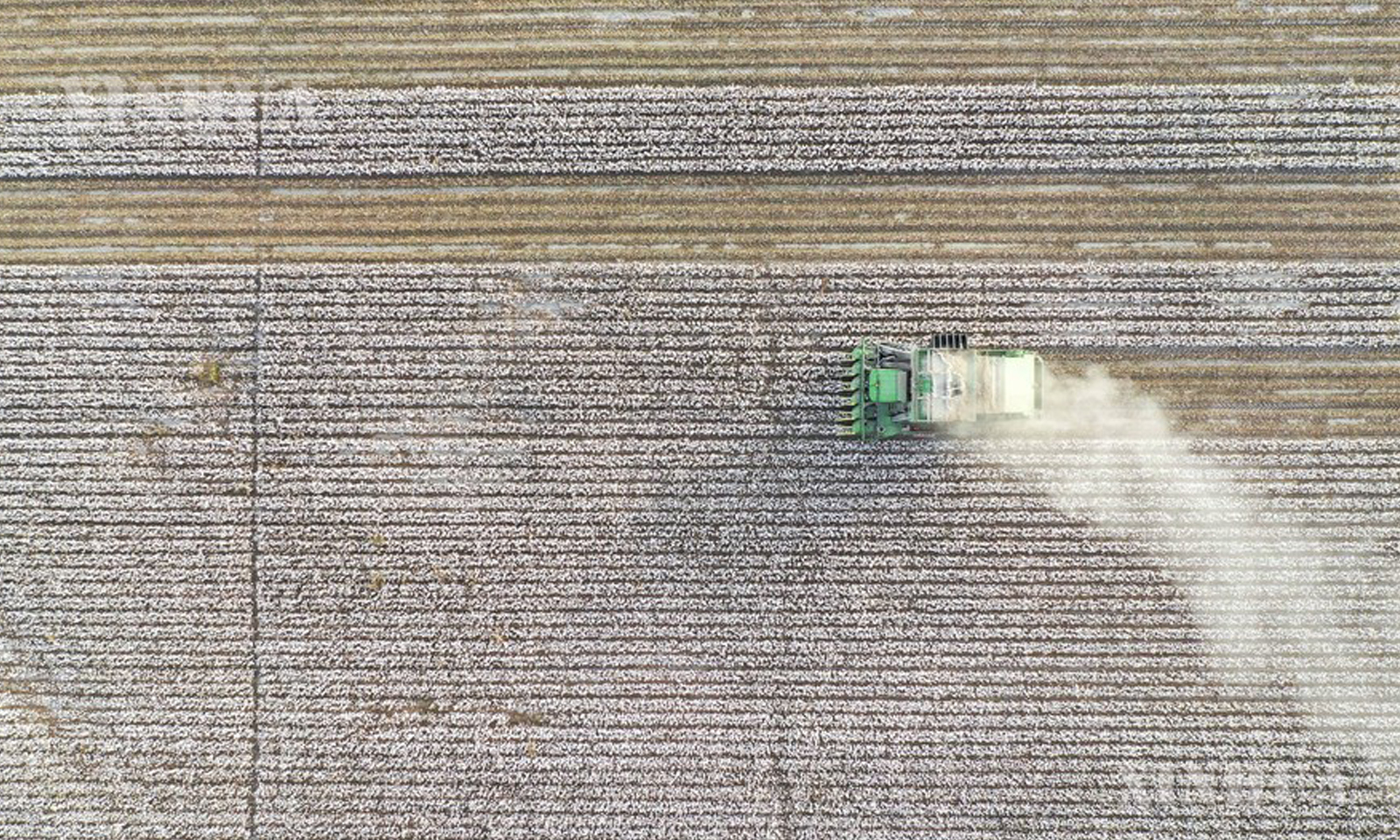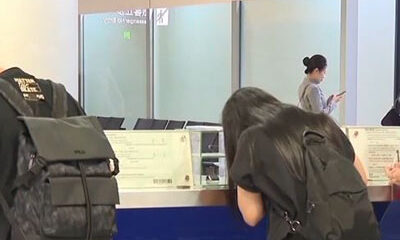China
အမေရိကန်နိုင်ငံက ရှင်းကျန်းထုတ်ကုန်များအား တားမြစ်ခြင်းမှာ ကုန်သွယ်ရေးဥပဒေများကို ချိုးဖောက်ခြင်းဖြစ်ကြောင်း တရုတ်အဖွဲ့အစည်းပြော

ပေကျင်း၊ ဇွန် ၂၃ ရက် (ဆင်ဟွာ)
အမေရိကန်နိုင်ငံက တရုတ်နိုင်ငံ၊ ရှင်းကျန်း (ဝေဂါ) ကိုယ်ပိုင်အုပ်ချုပ်ခွင့်ရဒေသမှ သွင်းကုန်များအားလုံးအပေါ် တားမြစ်ခြင်းသည် နိုင်ငံတကာ စီးပွားရေးနှင့် ကုန်သွယ်ရေးဥပဒေများကို ချိုးဖောက်ခြင်းဖြစ်ကြောင်း တရုတ် အမျိုးသား အထည်အလိပ်နှင့် အဝတ်အထည်ကောင်စီ (CNTAC) က ဇွန် ၂၂ ရက်တွင် ပြောကြားခဲ့သည်။
CNTAC အနေဖြင့် အမေရိကန်နိုင်ငံ၏ တားမြစ်ခြင်းကို ပြင်းထန်စွာကန့်ကွက်ကြောင်း၊ ထိုသို့တားမြစ်ခြင်းသည် တရုတ်နိုင်ငံ အထည်အလိပ်လုပ်ငန်း၏ အကျိုးစီးပွား အလုံးစုံကို ဆိုးဝါးစွာ ပျက်စီးစေသည်သာမက ကမ္ဘာ့အထည်အလိပ်လုပ်ငန်း၏ ပုံမှန်အစီအစဉ်ကိုလည်းပဲ ထိခိုက်စေမည်ဖြစ်ကြောင်း ပြောကြားခဲ့သည်။
အမည်ခံ “ရှင်းကျန်း အဓမ္မအလုပ်ခိုင်းစေမှု ကာကွယ်ရေးဥပဒေ” အပေါ် အခြေခံ၍ အမေရိကန်နိုင်ငံ အကောက်ခွန်နှင့် နယ်စပ်ကာကွယ်ရေးက ဇွန် ၂၂ ရက်တွင် ရှင်းကျန်းနှင့် ဆက်စပ်သော ထုတ်ကုန်များအားလုံး တင်သွင်းခြင်းအပေါ် တားမြစ်ခဲ့ပြီးနောက် ယင်းသို့မှတ်ချက်များ ထွက်ပေါ်လာခဲ့ခြင်းဖြစ်သည်။
ကမ္ဘာတစ်ဝန်းမှ ဝါဂွမ်းအရည်အသွေးကို အသိအမှတ်ပြုထားသည့် ရှင်းကျန်းဝါဂွမ်းသည် ကမ္ဘာ့စုစုပေါင်း ဝါဂွမ်းထွက်ရှိမှု၏၂၀ ရာခိုင်နှုန်းခန့်ရှိကြောင်းနှင့် တရုတ်နိုင်ငံနှင့် ကမ္ဘာ့အထည်အလိပ်လုပ်ငန်း နှစ်ခုလုံး၏ ကောင်းမွန်၍ ရေရှည်တည်တံ့သော ဖွံ့ဖြိုးတိုးတက်မှုအတွက် အရေးပါသော အာမခံချက်တစ်ခုဖြစ်ကြောင်း CNTAC က ဆိုသည်။
အမေရိကန်၏ လှုပ်ရှားမှုသည် တရုတ်နိုင်ငံ၏ အထည်အလိပ်လုပ်ငန်းအပေါ် မလိုလားအပ်သောဖိနှိပ်မှုတစ်ခု ဖြစ်ကြောင်း မှတ်ချက်ပြုလျက် ကမ္ဘာ့အထည်အလိပ်လုပ်ငန်း၏ စက်မှုလုပ်ငန်းဆိုင်ရာနှင့် ထောက်ပံ့ကွင်းဆက်များ၏ လုံခြုံမှုနှင့် တည်ငြိမ်မှုကို ဆိုးဝါးစွာ အန္တရာယ်ရှိစေသလို ကမ္ဘာလုံးဆိုင်ရာ အထည်အလိပ်လုပ်ငန်းရှိ အလုပ်သမားများ၏ အကျိုးစီးပွားကိုလည်း ဆိုးဆိုးဝါးဝါး ထိခိုက်စေကြောင်း ကောင်စီက ပြောကြားခဲ့သည်။
အဓမ္မအလုပ်ခိုင်းစေခြင်းသည် တရုတ်နိုင်ငံ၏ဥပဒေအရ အတိအလင်းတားမြစ်ထားကြောင်း၊ တရုတ်အထည်အလိပ်လုပ်ငန်းများသည် ဥပဒေကို တင်းကြပ်စွာလိုက်နာလျက်ရှိကြောင်းနှင့် အဓမ္မအလုပ်ခိုင်းစေခြင်းဟု အမည်တပ်ခြင်းမှာ တရုတ်အထည်အလိပ်လုပ်ငန်းတွင် မရှိကြောင်း CNTAC က ပြောခဲ့သည်။
CNTAC ၏ အထည်အလိပ်လုပ်ငန်းသည် တရုတ်အစိုးရ၏ ပံ့ပိုးကူညီမှုဖြင့် အမျိုးမျိုးသော အန္တရာယ်များနှင့် စိန်ခေါ်မှုများကို ထိရောက်စွာ တုံ့ပြန်သွားမည်ဟု ယုံကြည်ကြောင်း CNTAC က ပြောကြားခဲ့သည်။ (Xinhua)
………………………
(English Version)
U.S. ban on Xinjiang products violates trade rules: Chinese association
Source: XinhuaEditor: huaxia2022-06-23 10:58:16
BEIJING, June 23 (Xinhua) — The U.S. ban on all imports from China’s Xinjiang Uygur Autonomous Region is in violation of international economic and trade rules, the China National Textile and Apparel Council (CNTAC) said Wednesday.
The CNTAC said it strongly opposes the U.S. ban, which has not only seriously damaged the overall interests of China’s textile industry, but will also harm the normal order of the global textile industry.
The remarks came after a ban on imports of all products related to Xinjiang by the U.S. Customs and Border Protection on Tuesday, based on the so-called “Uyghur Forced Labor Prevention Act.”
Xinjiang cotton, the quality of which is recognized globally, accounts for about 20 percent of the world’s total cotton output and is a vital guarantee for the healthy and sustainable development of both the Chinese and global textile industries, the CNTAC said.
Noting that the U.S. move is a malicious suppression of China’s textile industry, the council said it seriously jeopardizes the security and stability of the industrial and supply chains of the global textile industry, and hurts the interests of workers in the global textile industry.
Stressing that forced labor is explicitly prohibited under Chinese law, the CNTAC said that Chinese textile enterprises strictly abide by the laws, and that the so-called forced labor does not exist in China’s textile industry.
The CNTAC said it believes that China’s textile industry will respond effectively to various risks and challenges with the support of the Chinese government. ■
Photo : A cotton picker works in the fields at Yuli County, northwest China’s Xinjiang Uygur Autonomous Region, Oct. 24, 2021. (Xinhua/Zhao Ge)






